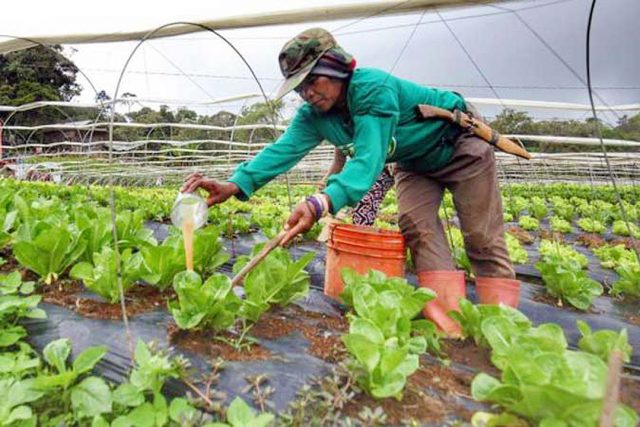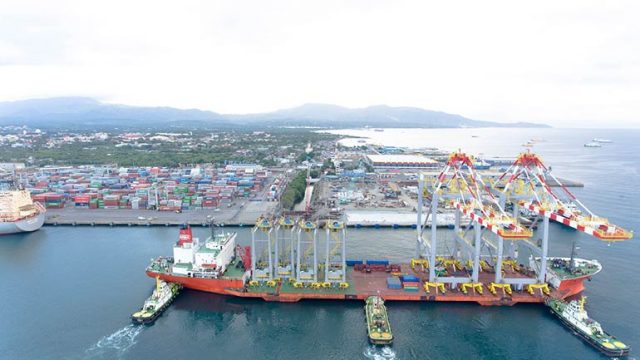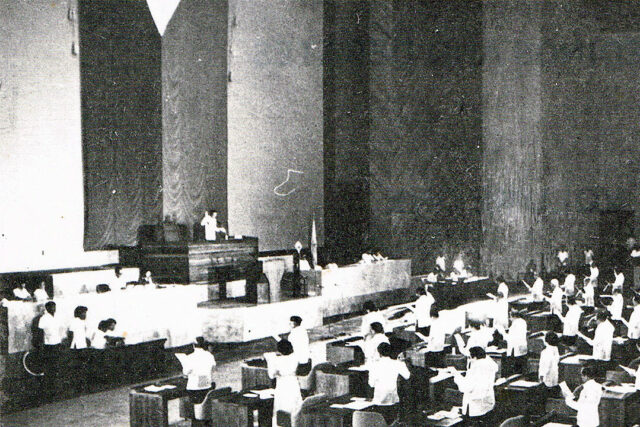By Alyssa Nicole O. Tan, Reporter
PHILIPPINE senators on Tuesday rejected a House of Representatives proposal to change the 1987 Charter through a hybrid constitutional convention, saying it is too expensive.
“This will surely eat up what little funds we have for other government programs and projects, and may also prevent us from achieving our goal of having less than 60% debt-to-GDP (gross domestic product) ratio by 2025,” Senate Majority Leader Emmanuel Joel J. Villanueva told BusinessWorld in a Viber message.
Congress should take into account the cost, which could reach P28 billion, he said, citing the National Economic and Development Authority.
The House on Tuesday passed on second reading a bill detailing the procedures for Charter change (Cha-cha) through a hybrid constitutional convention (con-con).
Iloilo City Rep. Lorenz R. Defensor proposed that only economic provisions of the Constitution be changed. The amendment was approved.
Under the substitute bill approved by the body, convention members who will propose changes to the Constitution will both be elected and appointed. Delegates of the convention, which will run Nov. 21 to June 30, 2024, will get a P10,000 daily salary and will be entitled to travel allowance.
The government needs P9.5 billion to amend the Charter, Cagayan de Oro Rep. Rufus B. Rodriguez told a hearing last week after talking to election officials.
The election of delegates will cost P1.5 billion if done simultaneously with village elections, while the budget for the convention itself will cost P5 billion, he said. The plebiscite will cost P3 billion.
Senator Juan Edgardo M. Angara, who heads the Senate finance committee, called the hybrid con-con “the most expensive and laborious option to revise the Constitution.” He also said the salaries are too high.
“Those currently seated shouldn’t be beneficiaries, especially in the extension of one’s term, should there be any,” he said in a statement.
Senator Robin C. Padilla, who earlier filed a resolution seeking to amend economic provisions of the Constitution through a constituent assembly, frowned at the House proposal.
“First, we don’t have money to have an election,” he said in Filipino, according to a transcript sent by his office. “There will even be new provisions on salary, we don’t have that. Will we have to borrow money again?”
The senator, who heads the Senate committee on constitutional amendments, said he expects a deadlock if amendments focus on political provisions. Congress, he added, should focus on economic provisions.
“We know the situation, and we should also know the needs of the people,” Mr. Padilla said. “And what is that? Work, food on their dinner table, salary. The political structure can follow after that.”
He said he is open to holding his own hearings on the issue.
“We in the Senate can’t just rely on the House of Representatives public hearings, so we will also hold our own public hearings,” he said. “Should I be convinced, for example, by the people that they are prepared for the con-con, then I will adopt it.”
Senator Ana Theresia “Risa” N. Hontiveros-Baraquel called Charter change a major distraction that will only sideline urgent issues.
“We should do away with this long-standing tale of make-believe that Charter change will solve all our problems,” she said in a statement in mixed English and Filipino. “We don’t need that right now.”
“Let’s face the reality that inflation, poverty and corruption are the pressing issues that need to be addressed with aggressive political will and focus,” she said. “Why is there a sense of urgency in Charter change, but none of these issues are felt by Filipinos?”
NO BUDGET
Ms. Hontiveros said spending a large sum on Charter change would only do more damage. “I am glad the president has explicitly articulated that this is not a priority. I hope his allies in Congress act accordingly.”
President Ferdinand R. Marcos, Jr. has said changing the Constitution is not a priority of his government.
“We can achieve what we want, but within the present constitutional [framework,] the way the Constitution is written,” he told reporters on Feb. 12. “There are so many other things we need to do first, that we can still do.”
Senator Maria Lourdes Nancy S. Binay said even changing economic provisions of the Charter is not needed since these have been addressed by recent amendments to the Retail Trade Liberalization Act, Public Services Act and Foreign Investments Act.
“It is better to prioritize their implementing rules and regulations than to push Cha-cha despite the crises we are facing.”
Meanwhile, the House bill on the hybrid constitutional convention does not specify a budget for the exercise.
Instead, any amount needed will be taken from available appropriations under the national budget, Quezon Rep. David C. Suarez told Tuesday’s hearing.
Senior Minority Leader Paul R. Daza, one of the congressmen who voted against the measure, said a constitutional convention takes longer than a constituent assembly, which he supports.
“In a constituent assembly, you can restrict the agenda because you cannot hide the agenda [and] you have to pass [it] in the House and in the Senate,” he told reporters. “You can do that in a few months at no cost… We can do as good of a job as any delegate in a con-con.”
A constitutional convention is considered to be the “most transparent, exhaustive and democratic and the least divisive means of implementing constitutional reforms,” the House committee said earlier.
The other modes of Charter change is through a constituent assembly composed of senators and congressmen and through a people’s initiative. Proposed changes must be ratified by a majority vote in a national referendum.
There have been several high-profile attempts to change the 1987 Constitution, but these have all failed. —with Beatriz Marie D. Cruz












